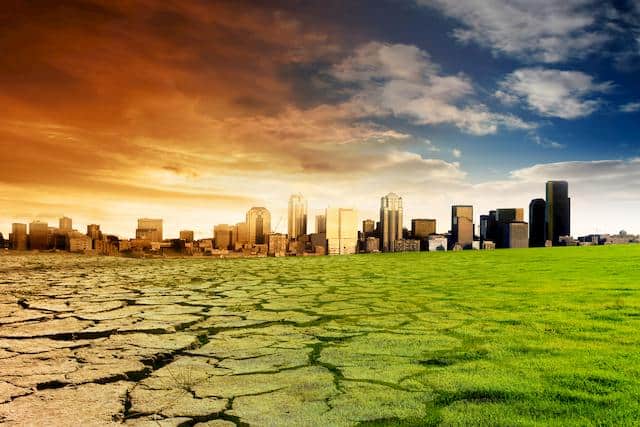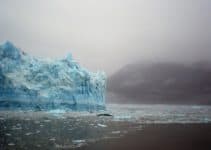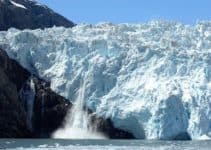Global warming, or climate change, is one of the topical discourses around the world. This is the primary concern of biologists and environmentalists today, as the impact humanity makes on the planet turns out to grave and irreversible. The challenge of the environmentalists and eco-activists today is not only to invent the ways and technologies that can abate the processes and consequences of global warming but to engage as many people as possible in the mindful consumption of the hazardous and non-recyclable products and items.
The first thing to clarify is the reason for such a widespread concern about global warming and the threats it poses to future generations. As a result of climate change, the average temperature on Earth is changing. Currently, the global temperature has already increased by about 1°C compared to the pre-industrial era.
The reason for this is primarily greenhouse gas emissions. The main source of thereof is human activity and exhaustion of the natural unrestorable resources. It is the concentration of greenhouse gases in the atmosphere that leads to an increase in the average temperature on Earth. As a result, glaciers are melting and the sea level is rising, the number of droughts and natural disasters, such as hurricanes, floods, mudflows, etc., increases.
Therefore, the area of seasonal sea ice in the Arctic decreases and so does its biodiversity. Additionally, above all, the very humanity suffers from its own activities. Some people have to migrate from the traditional habitat, some have a shortage of food and water resources. In fact, the negative effects of climate change can be listed indefinitely. Thus, the change in average temperatures in only a minor inconvenience compared to the resource shortage caused by the imbalance in flora and fauna caused by climate change.
One of the major events in the climatic world is the Conference of the Parties to the United Nations Framework Convention on Climate Change. It the main international document on the updates and dynamics in climate change. The countries that ratify this Convention, the Kyoto Protocol and the Paris Agreement gather annually for negotiations.
Today, the Intergovernmental Panel on Climate Change (IPCC) warns the world about the possible increase of average temperature around the world by 1.5°C or 2°C, which will lead to dramatic consequences. PCC is the world’s most respected institution that studies climate change. It was founded in 1988 by the World Meteorological Organization (WMO) and the United Nations Environment Program (UNEP).
Although the report discusses the scenarios for the temperature increase by 1.5°C or 2°C, current tendencies in greenhouse gas emissions will lead the planet to global warming by 3 through 3.5°C with far more drastic effects than those described in the IPCC Special Report. This report shows the difference in consequences by half a degree, while a global temperature increase may reach several degrees. However, even an increase of more than 1.5°C will have serious consequences.
If global warming exceeds 1.5°C, it will cause irreversible changes in the biosphere, hydrosphere, and even the social life of humanity. The average annual temperature in most regions of the world and the peak temperature in the most densely populated regions of the world will rise.
Consequently, by 2100, the level of the global ocean will rise by 10 centimeters and the Arctic ice cover will disappear completely in the summer period once a decade, compared only once a century, with a scenario of no more than 1.5°C. As for its impact on flora and fauna, the area for habitation and reproduction will be halved for 18% of insects, for 8% of vertebrates, and for 16% of plants.
If global warming peaks at 1.5°C, it will affect only 6% of insects, 4% of vertebrates, and 8% of plants). In the global ocean, coral reefs will almost extinct: their number will be reduced by 70–90% at 1.5°C. Concerning the holistic impact on the environment, global warming will affect humanity as follows: the difference in the number of people in need and poverty is estimated at several hundred million people, as a result of climate risks, under both scenarios; twice as many people will experience water scarcity compared with a global temperature increase of 1. 5°C.
The scenario of raising the temperature by and over 2°C is associated with serious consequences not only for crop farming but also for cattle breeding, as animals will experience stress associated with an increase in temperature. Regarding all the changes that global warming will bring, from a long-time perspective, the planet will grow uninhabitable.
For the destructive consequences of climate change to halt, global warming must not exceed 1.5°C. The measures that can prevent it from happening deal mostly with energy consumption and a shortage of hazardous emissions. Thus, the necessary measures are:
- Switching to renewable electricity production resources by 25-60% by 2030 and by 63-81% by 2050.
- Reducing the consumption of primary coal energy by 59-78% by 2030 and by 73-97% by 2050.
- Reduction of natural energy consumption by 32-87%.
However, it is important to introduce changes not only in vast manufactures but in the everyday habits humanity is used to. Revising the consumption choices than include non-recyclable materials and switching to the recyclable one or reducing the waste of the available ones. However, the challenge in preventing or halting the catastrophic aftermath of human activity can work only if the measures are combined in the manufacturing, legislative, educational, media, and individual levels.
As the prediction concerns the future of the environment and the long-term predictions up to 2050, the educational aspect in fighting with global warming is a vital one. For that reason, there is an element of environmental studies to reflect on incorporated in many disciplines, aimed to raise awareness about the existing ecological problems.
So, if you encounter a homework assignment alike and want to know more about your personal impact on climate change, the way it works or the things you can do about it, you can use some personalized help from a professional essay writing service, and get it all sorted out for you.






